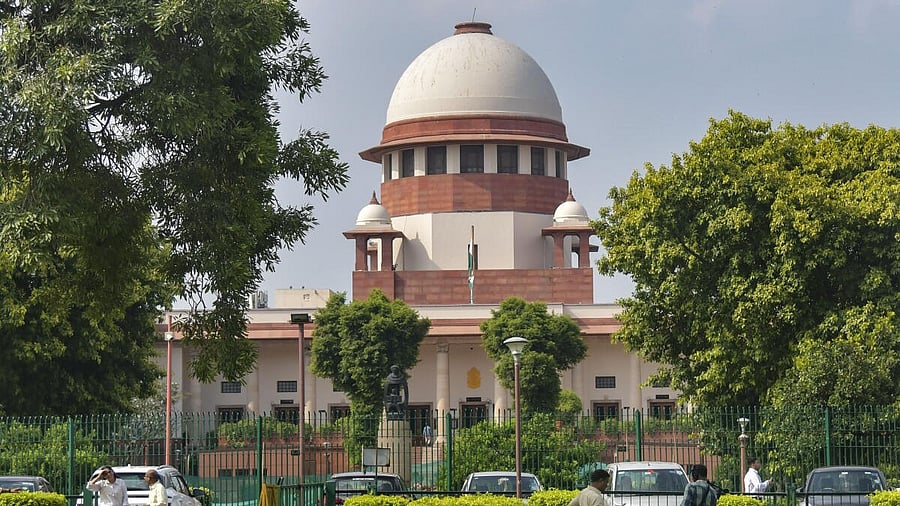
The Supreme Court of India.
Credit: PTI Photo
New Delhi: The Supreme Court on Tuesday acquitted a death row convict and another one sentenced to life term in a case of rape and murder of a 12-year-old girl in Uttar Pradesh's capital Lucknow in 2012.
"The present case is yet another classic example of lackluster and shabby investigation and so also laconic trial procedure which has led to the failure of a case involving brutal rape and murder of an innocent girl child," a bench of Justices Vikram Nath, Sanjay Karol and Sandeep Mehta said.
The court set free Putai and Dileep who were held guilty by the trial court and sentenced to death penalty and life imprisonment respectively. The high court had confirmed their conviction and sentence.
Examining their appeals, the court noted that the prosecution has fallen woefully short of proving the guilt of the accused by clinching evidence which can be termed as proving the case beyond all manner of doubt.
"We are conscious that the case involves a gruesome act of rape and brutal murder of a tender girl child aged 12 years. However, it is a settled tenet of criminal jurisprudence that in a case based purely on circumstantial evidence, the prosecution must prove its case beyond reasonable doubt. The incriminating circumstances must be such which point exclusively to the guilt of the accused and are inconsistent with his innocence or the guilt of anyone else," the bench said.
The court found no document pertaining to collection of the blood samples from the accused-appellants was produced and exhibited in evidence, thereby, rendering the DNA reports to be a piece of trash paper.
"DNA report is substantive piece of evidence and hence, the same could not have been tendered in evidence through an affidavit and that too of an officer who was not connected with the procedure in any manner," the bench said.
The court said it has no hesitation in holding that other than the allegation that the child victim’s chappals, underwear and the water canister were found in the field which was cultivated by accused No. 1-Putai, the prosecution has failed to lead any credible evidence whatsoever which can be considered to be incriminating the accused appellants for the crime in question.
In the case, the court noted that the investigating officers did not care to examine anyone from the neighbouring fields where the body of the child victim was found.
"The incident took place in the beginning of September, 2012 and the time of the incident was between 07:00 pm to 08:00 pm. In the beginning of the month of September, darkness would fall somewhere around 07:00 pm only."
"Thus, had the accused appellants indulged in such a ghastly act with the child victim, then their act would not have gone unnoticed by the persons residing in the locality. However, not a single person from the neighbourhood was examined by the investigating officers which creates a doubt on the bonafides of their actions," the bench said.
The court also pointed out that the fields where the material objects allegedly belonging to the child victim and her body were found was open and accessible to all and sundry.
"Hence, the prosecution would have to rule out the possibility of anyone other than the accused-appellants having committed the ghastly act for it to succeed and to bring home the charges against the said accused persons," the bench said.
The distance between ‘may be proved’ and ‘must be proved’ is small but has to be travelled before the prosecution can seek conviction of the accused in a case based purely on circumstantial evidence, the court added.
